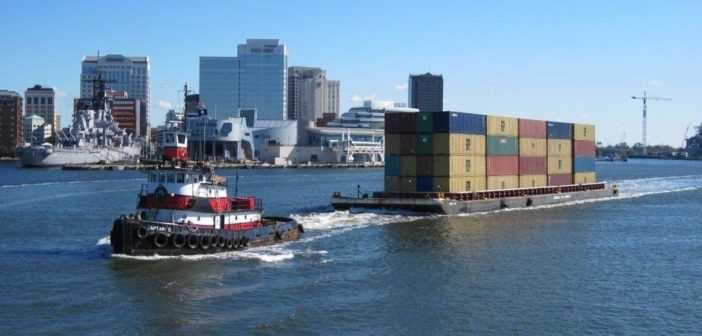“If you’re driving or commuting anywhere around the city, you know what I’m talking about,†said Mike Stamatis, president of the Red Hook Container Terminal, which operates a cross-harbor container-on-barge service between Port Newark, N.J., and Brooklyn, N.Y.
Marad, the Port Authority of NY/NJ and city officials promote the use of COB services as a way to eliminate some truck traffic and lessen air emissions in the region.
“I think there are a number of places in America that can benefit by saying, ‘Hey we’re going to take some of these trucks off the road,†said Derek Veenhof, executive vice president for asset management with Covanta, a waste-to-energy company that has a longstanding municipal waste contract with New York City.
City officials set reducing truck traffic a goal of their solid waste plan, not looking simply for the lowest-cost transport solution, said Veenhof. That commitment removed one barrier to the concept for moving containerized trash by barge for Covanto’s generation plants.
“Once you have that, the private sector will answer the call and say, ‘We can help you do that,’†he said.
Using short sea transport to redevelop small farming in Connecticut is the business plan for Harbor Harvest, based in Norwalk, Conn. Owner Robert Kunkel is having a 62’x21’ Incat Crowther designed, hybrid power aluminum catamaran built at Derecktor Shipyard/Robert E. Derecktor Inc., Mamaroneck, N.Y., to carry local produce across Long Island Sound.
“There’s $9 billion worth of produce between the mid-Hudson Valley and Connecticut,†but now coming from family farms “that can’t make more than $50,000 a year,†said Kunkel.
Using boats to serve the affluent Long Island market could mean an upstate farmer who gets $2 a dozen for his organic eggs locally might sell across the Sound for $6, carried on the 15-mile maritime route, he said.
That will eliminate the cost and delay of truck transport. Kunkel said he was under the impression a round trip from farm county to the city or Long Island was six hours – until truckers told him the time has now expanded to nine to 12 hours.
“They don’t want to do it,†he said. “They can’t make money.â€


